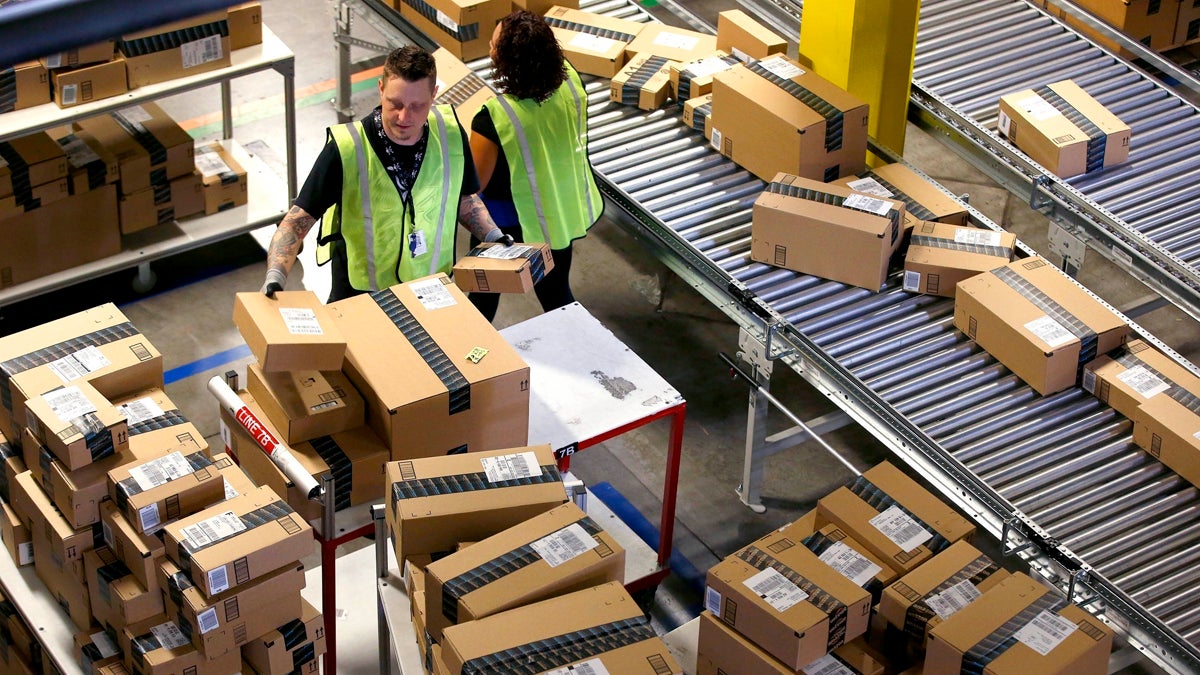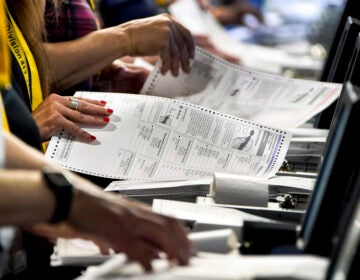Lawsuits likely if Pa. expands online sales taxation

Pennsylvania lawmakers are following the lead of other states as they consider requiring online marketplaces — such as Amazon — to charge sales tax on items they sell via third-party vendors. (AP file photo)
A portion of the Pennsylvania Senate’s latest, tax-heavy plan to balance the commonwealth’s budget is likely to prompt some legal entanglement.
The proposal to expand application of the commonwealth’s sales tax to online transactions is modeled on similar attempts by other states. And those states are already facing lawsuits.
If the measure passes the House and governor, it would require online marketplaces — such as Amazon — to charge sales tax on items they sell via third-party vendors.
The move is expected to net the state more than $40 million annually.
Colorado and Washington state recently passed similar measures, and a number of other states have approved alternative laws with the same goal: stemming the loss of tax revenue to online, out-of-state vendors.
Senate GOP leader Jake Corman — an author of the Pennsylvania proposal — said it’s about fairness.
“Brick and mortar [stores] in Pennsylvania, and employees in Pennsylvania, have to charge a sales tax, and they’re competing against companies who don’t,” he said.
But others don’t see it that way.
“Marketplaces cannot be held accountable for the sales made by stores that happen to use their platform,” said Steve DelBianco, executive director of the e-commerce trade association, NetChoice. “That’s as if you would require a shopping mall to be responsible for sales tax on sales made by stores in the mall — that’s ridiculous in the real world, and it’s just as indefensible in the online world.”
NetChoice has been busy filing lawsuits against states that have passed or are considering the “marketplace fairness” laws.
That’s why Pennsylvania lawmakers jumped on the bandwagon, Corman said.
“Other states are doing this,” he said. “We’re following other states.”
A few of the cases are on their way to the Supreme Court, where they’ll likely be used to determine whether the decades-old rulings that are still used as the basis for online taxation policy are valid.
Those rulings — dating back to 1967 and 1992, before e-commerce was a factor in sales — stipulate that companies don’t have to pay sales taxes unless they have a physical presence in the state where those taxes are levied.
WHYY is your source for fact-based, in-depth journalism and information. As a nonprofit organization, we rely on financial support from readers like you. Please give today.





